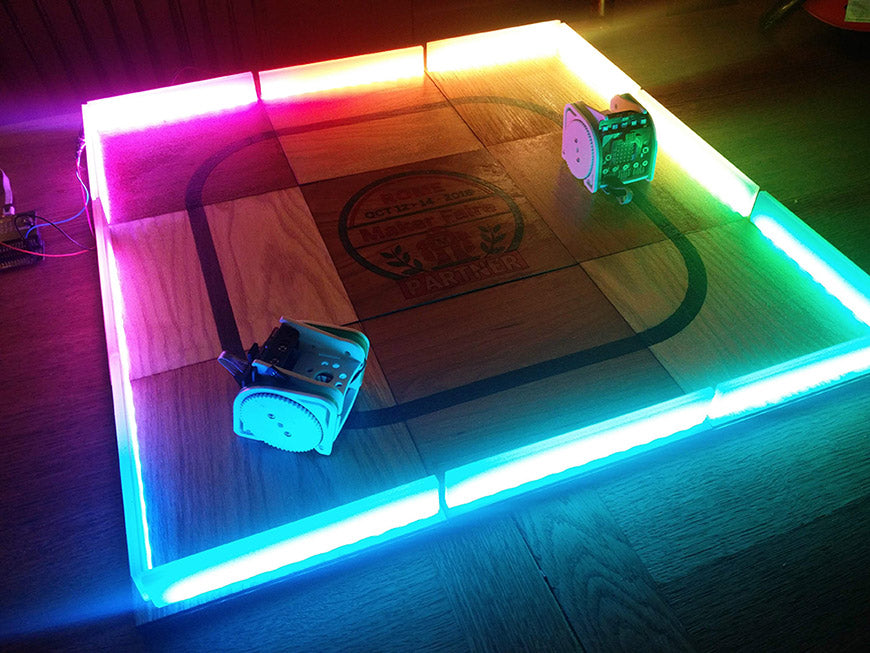Today, in particular, it is the A453. This last week we have been preparing for an appearance alongside giants (I would have said Titans, but that’s more Greek than Roman) of the Maker World DigiKey and the micro:bit foundation at Maker Faire Rome.

Surveying the remnants of our show gear I decided we need a new centrepiece for the display, that shows the best of Kitronik, what we do, what we sell and who we are as a group of committed and detail-obsessed makers. I also decided it needed to pack down small enough to fit into a backpack, so the next time we are called to the far reaches of the globe to show what we can do, we can do it in a carefree and breezy manner.
All Roads Lead To Rome Maker Faire 2018:

One of our most popular products is the MOVE:mini, a handsome little kit that takes a microbit and some continuous rotation servos and makes them into a fun wirelessly controlled, or automated wheely robot. We’ve had a couple of tracks built for these for some time, but to me they were uninspiring. Sure they’re made from quality Medite laser MDF but they lacked the panache of a showpiece. Fortunately, we sell some really beautiful laser cutter friendly wood veneers. I chose Cherry, Birch and Oak for their contrast. A tile design of these would to me show off some of our nicer looking products well. Put to make it modular I decided to make a jigsaw pattern to stick underneath which would hold the tiles in place for the event, but unpack and stack nicely for the backpack goal.

For the design of this part, I searched for clip art of jigsaw pieces and fired up Autodesk’s amazing Autocad. For those without a big budget, you can try it as a small business or get a student licence (if you are a student). Fusion 360 is a more visual product, but I’m used to designing in flat and letting my mind do the extruding. A little clicking later and the prototype jigsaw parts were ready to cut.

It was possibly at this stage it was decided that everything looks better with LEDs. So some channels to fit our lovely ZIP LEDs (addressable WS2812B Neopixel style (Neopixel is a Trademark of Adafruit Industries) to give a bit of extra pizazz were added. Along with a whole heap of extra complexity! Two layers were cut, first a 2mm layer of Ceiba, for its thickness and lightness and then 3mm Medite MDF for strength. Additionally, using some light diffusing Perspex a barrier was created for rogue move:minis and also to diffuse the LED light around the edge.

Arranging the veneered tiles into a 3×3 grid gave a nice track around the edge and a nice big area in the middle to make something else showy, because three types of wood, an intricate interlocking design, and addressable LEDs isn’t really enough…

What followed was some tracing of a jpg from Maker Faire Rome in the wonderful and free Inkscape, before cleaning up the resulting dxf file in Autocad with a little redrawing where the trace had dropped obvious geometric shapes.

The resulting dxf was vectored (this is what I tend to call a low powered, fast pass, laser cut (30% 40mm/s on 40W Laser) onto another sheet of Oak Veneer.

Now taking inspiration from my three children, who love to “colour”, I grabbed my huge pack of Sharpies and started trying my best to keep within the lines (after practising on a second vector I’d made on an offcut of oak, just in case it didn’t work at all).

The result was very pleasing and I’d probably try it again.

This method was also used for the black lines for the move:minis to follow. After a little testing, it was found that the line following worked fine, but the wheels were a little skiddy on the veneered surface. I know sand can be added to varnish but I feared this would spoil the look of the wood, so opted for some fancy PTFE additive to keep it clear and sharp looking.

The first coat of varnish would go on without beads, with the second (and final) coat to contain the additive. Whilst waiting for the first coat to dry it was observed that the areas that were coloured in were taking much much longer to dry and although the ink was staying in the wood it did leech slightly into the wet varnish, which was fine until it came time for the second coat, which wetted the first coat again.

Following the lines made it easy to contain this problem on the black, but for the colour on the central part, it meant a light touch and fast working, resulting in a fairly thick coat of varnish.

Whilst the varnish dried I set to work on the LEDs, adding pins and sockets to the end of the strips, to keep the modular dream alive.

As these were to be glued into the construction it was important to make sure the joints were well soldered then hot glued for extra strength, as well as tested as each joint was added.

There was a stage of filing the edges of the jigsaw pieces to achieve a fit that wasn’t too close, this could probably be avoided if a small offset was added in the cutting stage.

With the LEDs tested, the varnish dry (almost), and the jigsaw tested the final stage was to glue the layers together. Although I’d planned to use wood glue, it was decided to use contact adhesive as time was running out before the show.

A quick final test showed everything looked the part, the LEDs were working and we were ready for Rome! Fingers crossed it survives the journey, as although it was designed to fit in a backpack it has headed to the hold to make room for my extensive collection of Maker Faire related T-shirts.

If you want to see the Modular MOVE:mini Arena with added LEDs or MMMAWAL in person please come and visit us in Pavilion 8, location C1.

